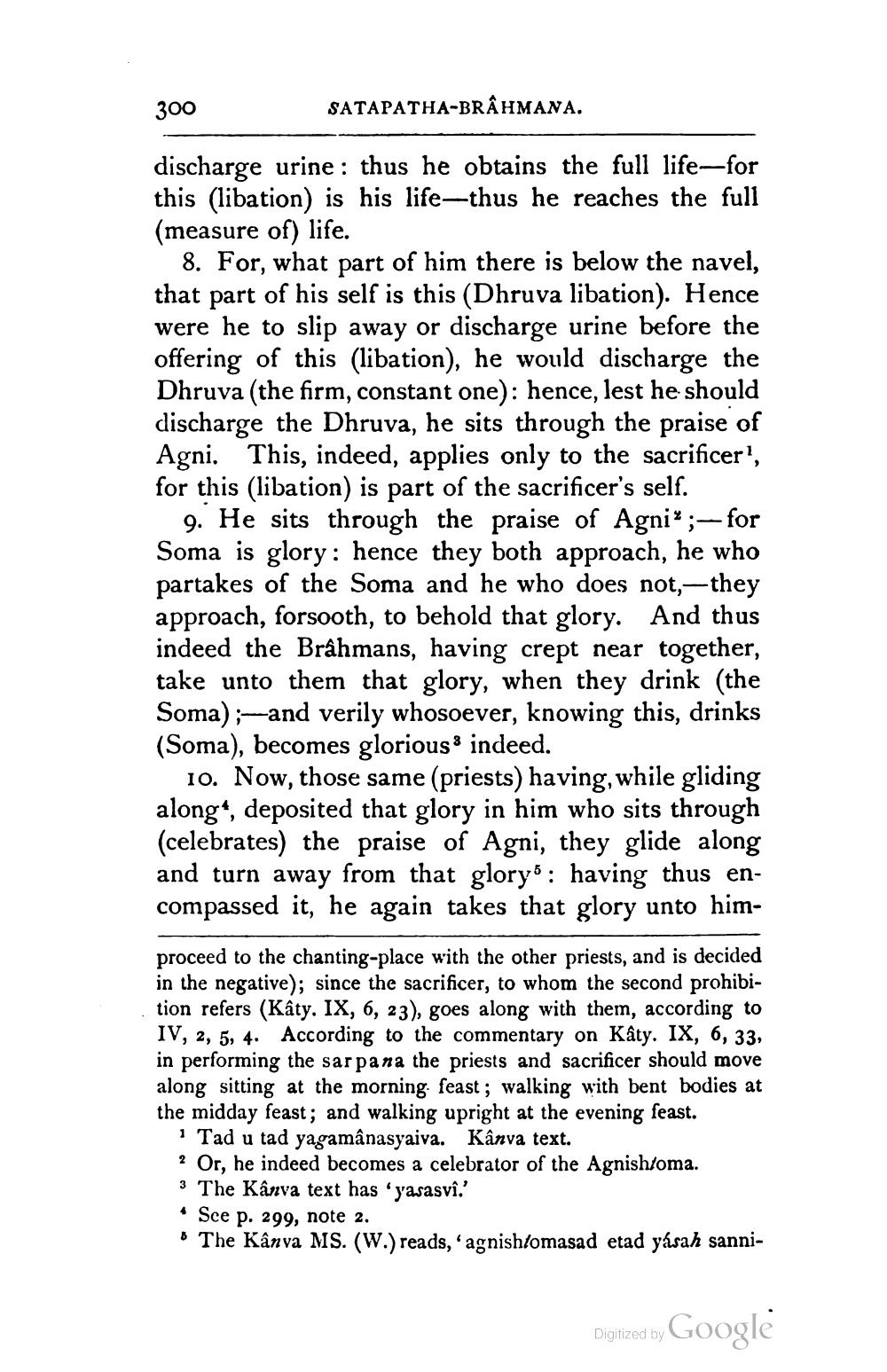________________
300
SATAPATHA-BRAHMANA.
discharge urine : thus he obtains the full life-for this (libation) is his life-thus he reaches the full (measure of) life.
8. For, what part of him there is below the navel, that part of his self is this (Dhruva libation). Hence were he to slip away or discharge urine before the offering of this (libation), he would discharge the Dhruva (the firm, constant one): hence, lest he should discharge the Dhruva, he sits through the praise of Agni. This, indeed, applies only to the sacrificer?, for this (libation) is part of the sacrificer's self.
9. He sits through the praise of Agni;- for Soma is glory: hence they both approach, he who partakes of the Soma and he who does not,—they approach, forsooth, to behold that glory. And thus indeed the Brahmans, having crept near together, take unto them that glory, when they drink (the Soma);-and verily whosoever, knowing this, drinks (Soma), becomes glorious: indeed.
10. Now, those same (priests) having, while gliding along“, deposited that glory in him who sits through (celebrates) the praise of Agni, they glide along and turn away from that glory5 : having thus encompassed it, he again takes that glory unto him
proceed to the chanting-place with the other priests, and is decided in the negative); since the sacrificer, to whom the second prohibition refers (Kâty. IX, 6, 23), goes along with them, according to IV, 2, 5, 4. According to the commentary on Kâty. IX, 6, 33, in performing the sarpana the priests and sacrificer should move along sitting at the morning feast; walking with bent bodies at the midday feast; and walking upright at the evening feast.
i Tad u tad yagamânasyaiva. Kânva text. 2 Or, he indeed becomes a celebrator of the Agnish/oma. 3 The Kânva text has 'yasasvî.' • Sce p. 299, note 2. • The Kânva MS. (W.) reads, ' agnishlomasad etad yásah sanni
Digitized by
Digitized by Google




